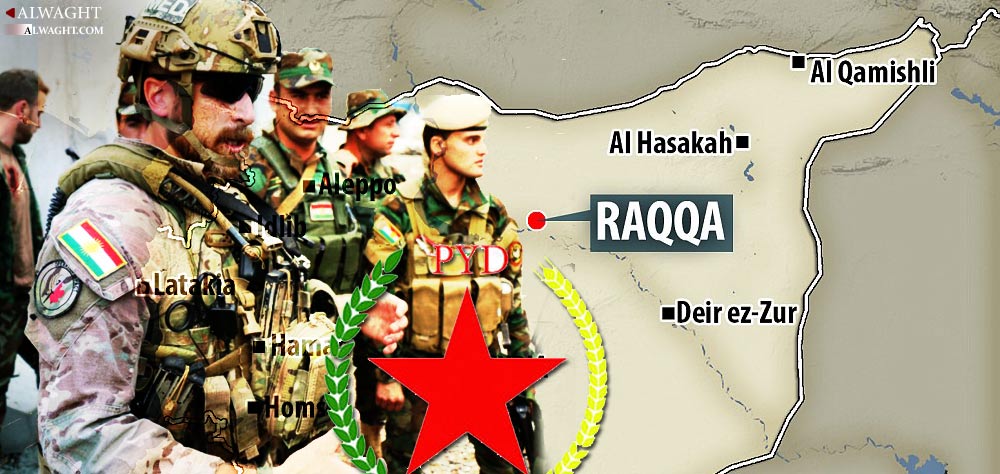Responding to the Ankara assault, the Kurdish forces hit Turkish forces' positions in northern Syria. A state of escalated tensions between the two sides pushed the US to send its own forces to set up a buffer zone between Turkey and the Kurdish groups.
The escalation is taking place while the two camps hold close relations with Washington, and are seen as main US allies in the region.
NATO-member Turkey has a long record of ties with the US. Some Turkish-backed opposition forces fighting the government of the Syrian President Bashar al-Assad are trained and armed by Washington.
On the other side, the US puts premium on its Kurdish allies in Syria as most trusted and most effective force for going in line with the American interests on the ground. The Americans know well that they can also count on the Kurdish fighters in battling ISIS terrorist group, a notion that has persuaded the Pentagon to invest heavily on them.
But there is a conflict: the US support for Turkey and the Kurds at the same time is coming while the two sides have been in clashes for nearly 4 decades, and each one regards the other side as its sworn enemy. The issue handicaps Americans plan in Syria as a key challenge, to an extent that reportedly the CIA-trained fighters have repeatedly clashed with the Pentagon-backed militants on the Syrian battlegrounds. Following the incidents, some experts said that the US was actually battling itself in Syria’s north.
The recent Turkish offensive against the north’s Kurdish regions is significant because the US has preferred the Kurds to Turkey for its campaign to push ISIS out of Raqqa, the capital of the self-proclaimed caliphate of terrorists in Syria and Iraq.
The analysts suggest that the Kurds are not that much interested to progress towards Raqqa because a majority of the northern city’s residents are Arabs. But the operation will help them garner weight on the ground, not to mention that their participation will entrust them bargaining chips on the negotiating table with the Syrian government in the future.
But for Turkey the expansion of areas under the Kurdish control in northern Syria is nightmarish. That is why preventing Kurds from gaining power and ground has turned into a priority topping the foreign policy agenda of the Turkish leaders who are going to great lengths to make sure that the People’s Protection Units (YPG) as well as Democratic Union Party (PYD), which are regarded by Ankara as Syrian branches of the Kurdistan Workers' Party (PKK), Turkeys archenemy, will not establish an autonomous region along the southern Turkish borders.
It appears that the fresh Turkish airstrikes are coming to put strains on the US to replace the Kurds with the Turkish forces and Turkish-backed Syrian opposition forces for reclaiming Raqqa.
President Recep Tayyip Erdogan of Turkey on Saturday criticized Washington for its support for the Kurds as damaging the “spirit of solidarity” with Turkey.
“Why are we asking for help from terrorist organizations? We are here," Erdogan said as he addressed an energy conference in Istanbul, according to the Reuters news agency.
"Turkey, coalition forces led by the United States, and the Free Syrian Army all together can wipe them (ISIS) out. This is not a difficult thing for us," Reuters quoted him as saying.
He said he will tell this to Trump. In two weeks from now, Erdogan will travel to the US for meeting with his American counterpart, and persuading him to exclude the Kurdish forces from final Raqqa push, a request widely believed will be turned down by the American leader. Because the US does not trust the Turkish-backed militant groups in north Syria as it sees them in close relationship with al-Qaeda and even ISIS. This belief is strengthened as Washington in the past years of the Syrian conflict supported the Syrian opposition only to end up finding its efforts counterproductive.
On the other side, the ongoing American help for the Kurds will likely make Ankara bristle at the US, and continue raids against Kurdish targets inside Syria. This was recently made clear by Erdogan during a speech.
Kurds threatened to suspend the progressing Raqqa operation should Turkey continue air assaulta against their sites, an issue carrying the potentials of enormously handicapping Washington’s maneuvering power in north of Syria.
/298
source : Alwaght
Tuesday
2 May 2017
11:16:48 AM
827321

(AhlulBayt News Agency) - Turkish Air Force jets bombed Kurdish fighters' positions in northern Syrian and Iraq early last week and killed hundreds of them.
